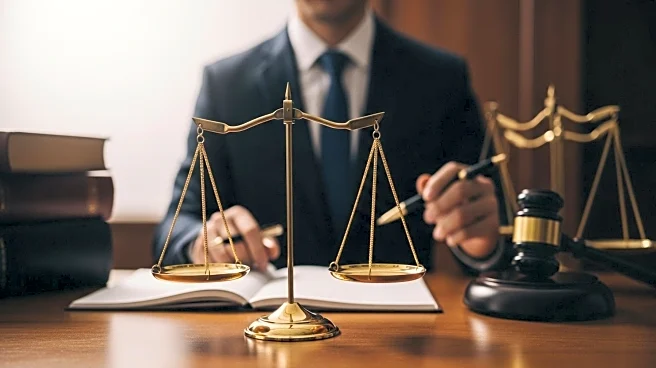What's Happening?
The Supreme Court has granted interim relief to IAS officer Y Srilakshmi by staying the trial proceedings in the Obulapuram Mining Company illegal mining case. The decision comes after Srilakshmi challenged the Telangana High Court's dismissal of her discharge petition, which the Supreme Court described as 'strange' and lacking proper reasoning. The case, which has been ongoing for over a decade, involves allegations of corruption and irregularities in iron ore mining leases across the Andhra Pradesh-Karnataka border. Srilakshmi is accused of misusing her position to facilitate the scam, which allegedly caused significant financial losses to the state. The Supreme Court's intervention halts the trial until a full hearing is conducted.
Why It's Important?
This development is significant as it highlights the ongoing legal battles surrounding corruption in India's mining sector, which has implications for governance and accountability. The Supreme Court's decision to stay the trial underscores the complexities involved in high-profile corruption cases and the challenges in ensuring fair judicial processes. The case has already impacted political and bureaucratic circles, with senior officials and politicians implicated. The interim relief granted to Srilakshmi may influence similar cases, setting a precedent for how discharge petitions are handled in corruption trials. The outcome of this case could affect public trust in the judicial system and the government's ability to combat corruption effectively.
What's Next?
The Supreme Court's stay on the trial proceedings means that the case will remain on hold until a full hearing is completed. This pause allows for further examination of the evidence and arguments presented by Srilakshmi and the respondents. The legal community and stakeholders in the mining industry will be closely monitoring the developments, as the case could have broader implications for regulatory practices and anti-corruption measures. The Supreme Court's final decision will be pivotal in determining the course of action for similar cases and may influence future legal strategies in corruption trials.
Beyond the Headlines
The case against Y Srilakshmi raises important questions about the ethical responsibilities of public officials and the systemic issues within the mining industry. It highlights the need for robust mechanisms to prevent misuse of power and ensure transparency in government dealings. The legal proceedings also reflect the challenges in balancing judicial independence with accountability, as courts navigate complex corruption cases involving influential figures. The outcome of this case could lead to reforms in how corruption is addressed within the bureaucratic system, potentially influencing policy changes and strengthening anti-corruption frameworks.








